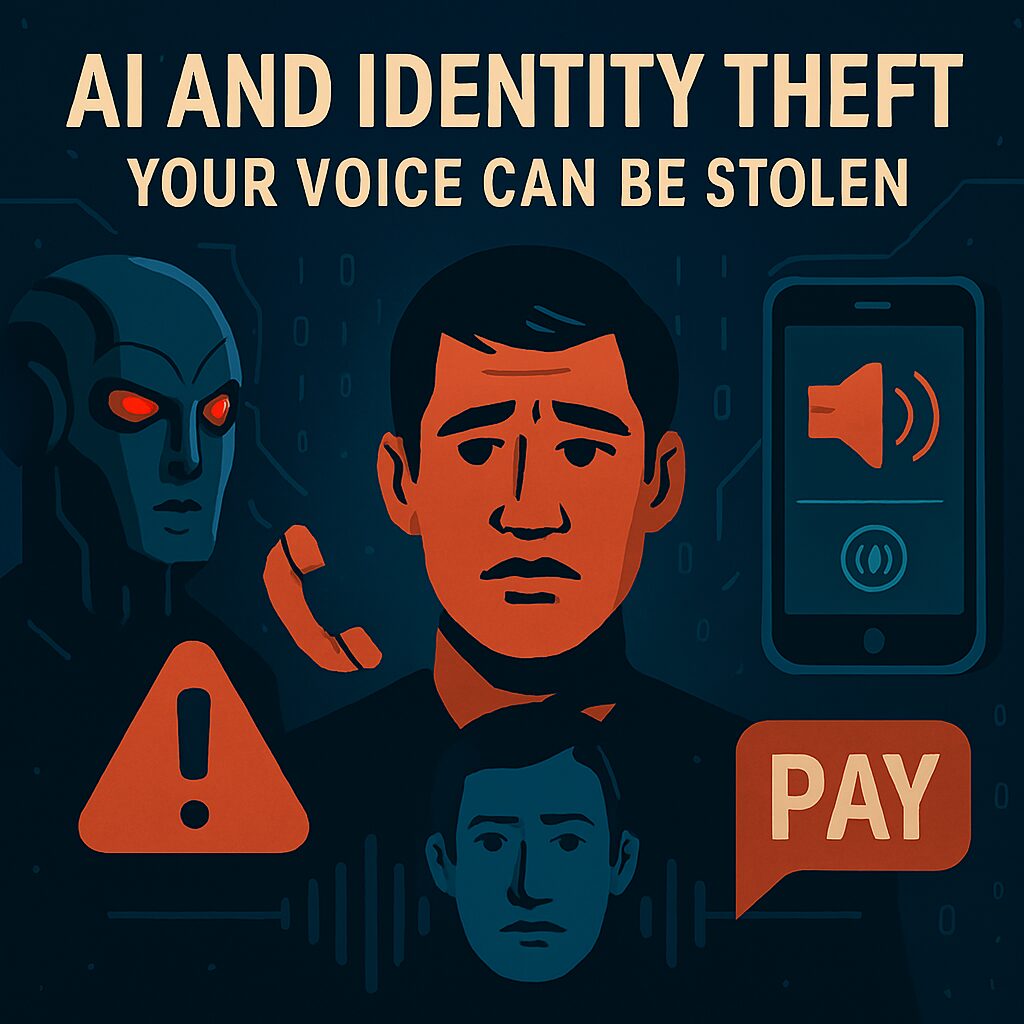Introduction: When Your Voice Becomes a Weapon
In 2025, identity theft has evolved beyond stolen passwords and hacked databases. Today, your voice—once a trusted marker of authenticity—can be cloned, manipulated, and weaponized by artificial intelligence. With just a few seconds of audio, cybercriminals can recreate your speech patterns, emotional tone, and even your accent. The result? A chilling new frontier in fraud: AI-powered voice identity theft.
🧠 What Is Voice Cloning Identity Theft?
Voice cloning uses machine learning to replicate a person’s voice using short audio samples. These samples are often harvested from social media, podcasts, interviews, or voicemail messages. Once cloned, the voice can be used to:
- 🎯 Impersonate individuals in phone calls
- 💸 Authorize fraudulent financial transactions
- 🏢 Mimic executives in business meetings
- 👪 Trick family members into sending money during fake emergencies
According to , AI impersonation scams have surged by 148% in 2025, with voice cloning at the center of this digital deception.
📈 Why Voice-Based Identity Theft Is Exploding
| Factor | Impact |
|---|---|
| 🎤 Abundance of Audio Data | Public voice clips are easy to find online |
| 🧰 Accessible AI Tools | Free or cheap voice cloning software is widely available |
| 📱 Emotional Manipulation | Scammers exploit trust and urgency in fake distress calls |
| 💸 Cryptocurrency Payments | Victims are coerced into sending untraceable funds |
In one case reported by , a woman nearly transferred money after receiving a cloned voice call from someone pretending to be her daughter in danger.
🔍 How to Spot a Voice Cloning Scam
🚩 Red Flags to Watch For:
- Robotic or flat tone
- Unnatural pauses or repeated phrases
- Caller avoids personal details
- Sudden emergencies demanding money
- Caller ID mismatch or spoofed numbers
🧪 Verification Tips:
- Use a family code word
- Confirm identity via alternate channels
- Never act on voice alone—verify visually or in person
🛡️ How to Protect Yourself in 2025
✅ Digital Hygiene
- Avoid posting voice messages publicly
- Limit exposure on podcasts, interviews, and social media
- Use strong authentication methods beyond voice recognition
🔐 Tech Safeguards
- Enable multi-factor authentication (MFA)
- Use AI detection tools to verify synthetic voices
- Monitor financial accounts for unusual activity
📞 Emergency Protocols
- Establish family verification systems
- Educate loved ones about voice cloning risks
- Report suspicious calls to cybercrime authorities
🔑 SEO Keywords to Target
- AI voice identity theft 2025
- voice cloning scams
- synthetic voice fraud
- deepfake phone calls
- AI impersonation threats
- voice-based authentication risks
- how to detect cloned voices
🧭 Conclusion: The Voice Is No Longer Sacred
In 2025, your voice is no longer just a means of communication—it’s a vulnerability. As AI continues to blur the line between real and synthetic, individuals and organizations must rethink how they verify identity and protect trust.

